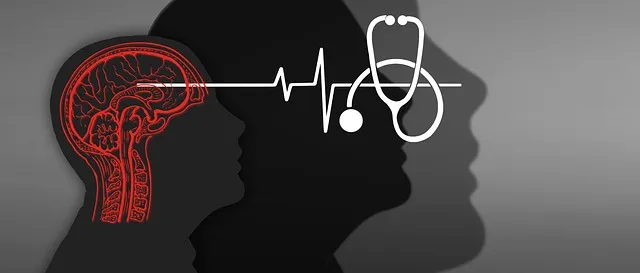Media portrayals greatly influence public understanding of mental health, with positive depictions encouraging support-seeking and hope, while negative representations perpetuate stigma. Accurate media representation is crucial for normalizing experiences, reducing judgment, and promoting help-seeking behaviors. Organizations like Kaiser Permanente, through their behavioral health phone numbers in Aurora, provide accessible resources to combat mental health misinformation. Enhancing media literacy, promoting diverse narratives, and educating the public can foster empathy, reduce stigma, and improve healthcare accessibility for those with mental health challenges.
In today’s media landscape, the representation of mental illness plays a pivotal role in shaping public perception. This article explores how media portrayals impact mental health views, specifically delving into the current state of stigma and misconceptions. We present solutions, including strategies for positive change and the vital role of resources like the Kaiser Permanente Behavioral Health Phone Number Aurora. By fostering awareness and empathy through engaging content, we can challenge negative stereotypes and promote a more nuanced understanding of mental illness.
- Understanding the Impact of Media Portrayals on Mental Health Perception
- The Current State: How Media Contributes to Stigma and Misconceptions
- Kaiser Permanente Behavioral Health Phone Number Aurora: A Resource for Accurate Information
- Strategies for Positive Change: Enhancing Media Representation
- Fostering Awareness and Empathy Through Engaging Content
Understanding the Impact of Media Portrayals on Mental Health Perception

Media portrayals have a profound impact on shaping public understanding and perceptions of mental health. The way mental illness is depicted in films, television shows, and news media can influence societal attitudes, often perpetuating stereotypes or, conversely, promoting greater awareness and empathy. This is especially significant as these representations can affect how individuals with mental health challenges are treated in real life.
For instance, positive portrayals of emotional healing processes in media can encourage viewers to seek support and understand that recovery is possible. Conversely, negative or inaccurate depictions may lead to stigma, discrimination, and even deter individuals from accessing vital Kaiser Permanente behavioral health services in Aurora or elsewhere. Enhancing media literacy and ensuring diverse representation of mental illness are crucial steps towards fostering a more empathetic society and improving access to quality healthcare for those in need, including the benefits that can be gained from Emotional Intelligence and Healthcare Provider Cultural Competency Training.
The Current State: How Media Contributes to Stigma and Misconceptions

The media plays a significant role in shaping public perception and understanding of mental health issues, often influencing societal attitudes and behaviors. Unfortunately, the current portrayal of mental illness in popular culture tends to perpetuate stigma and foster misconceptions. Many media outlets still rely on stereotypical representations, such as portraying individuals with mental health challenges as dangerous or weak, further alienating those who struggle silently.
This misinformed narrative can be particularly detrimental, especially when considering that accessible resources like the Kaiser Permanente behavioral health phone number in Aurora are available to support those in need. By perpetuating these falsehoods, media contributes to a culture where individuals with mental health concerns face judgment and discrimination, hindering their ability to seek help. It is crucial to address these misconceptions through increased Mental Health Awareness initiatives and promote stories that highlight the Inner Strength Development that can emerge from facing such challenges. Additionally, proper Risk Assessment for Mental Health Professionals should be conducted to ensure accurate and empathetic representation in media.
Kaiser Permanente Behavioral Health Phone Number Aurora: A Resource for Accurate Information

In today’s digital age, accurate representation of mental health issues is more crucial than ever. The Kaiser Permanente behavioral health phone number Aurora stands as a beacon of hope for individuals seeking reliable information. This dedicated resource offers a direct line to professionals who can provide guidance, support, and evidence-based strategies for managing various aspects of mental wellness.
By utilizing this phone number, folks can gain access to a wealth of knowledge and self-awareness exercises designed to foster positive mental health. Furthermore, it empowers individuals to take proactive steps towards self-esteem improvement and navigating the complexities of their conditions. The initiative from Kaiser Permanente exemplifies a significant step in challenging stigmatized representations and promoting understanding of mental illness within the community.
Strategies for Positive Change: Enhancing Media Representation

To foster positive change in mental health representation, media outlets can play a pivotal role by adopting more inclusive and accurate narratives. This shift can begin with recognizing the diversity within mental illness itself and portraying characters with authentic experiences. By engaging with experts like those from Kaiser Permanente behavioral health phone number Aurora, media creators can learn about various conditions, symptoms, and recovery journeys. Incorporating real-life stories into scripts not only challenges stereotypes but also inspires hope among viewers facing similar struggles.
Moreover, focusing on inner strength development, stress reduction methods, and effective communication strategies within narratives can offer valuable insights to audiences. Portraying characters actively managing their mental health through these means encourages a culture of open dialogue and support. This approach ensures that media representation goes beyond mere visibility; it educates the public, reduces stigma, and empowers individuals to seek help, ultimately contributing to a healthier society.
Fostering Awareness and Empathy Through Engaging Content

Media has a significant role in shaping public perception about mental health. By representing mental illness accurately and empathetically, it can foster understanding and reduce stigma. Engaging content that tells stories of recovery, features diverse individuals, and highlights the human experience behind disorders can make a profound impact. This approach encourages viewers to see beyond symptoms and recognize the complexity of mental health struggles.
Organizations like Kaiser Permanente, with their behavioral health phone numbers in Aurora, play a crucial role in this process. They not only provide accessible resources but also contribute to the development of public awareness campaigns that promote Mental Health Policy Analysis and Advocacy. Such initiatives ensure that media narratives are informed by expert insights, reflecting reality accurately while offering hope and encouragement for those seeking support. Effective content creation can be a powerful tool in Risk Management Planning for Mental Health Professionals, fostering a more compassionate society and better-equipped community.
Media representation plays a pivotal role in shaping public perception of mental illness. By challenging stereotypes and promoting accurate, empathetic portrayals, we can foster understanding and reduce stigma. The resources provided by institutions like Kaiser Permanente Behavioral Health Phone Number Aurora serve as valuable guides, offering accurate information to counter misconceptions. Through strategic changes in media content and increased awareness, we can create a more inclusive society that supports mental health and empathy for those facing these challenges.






